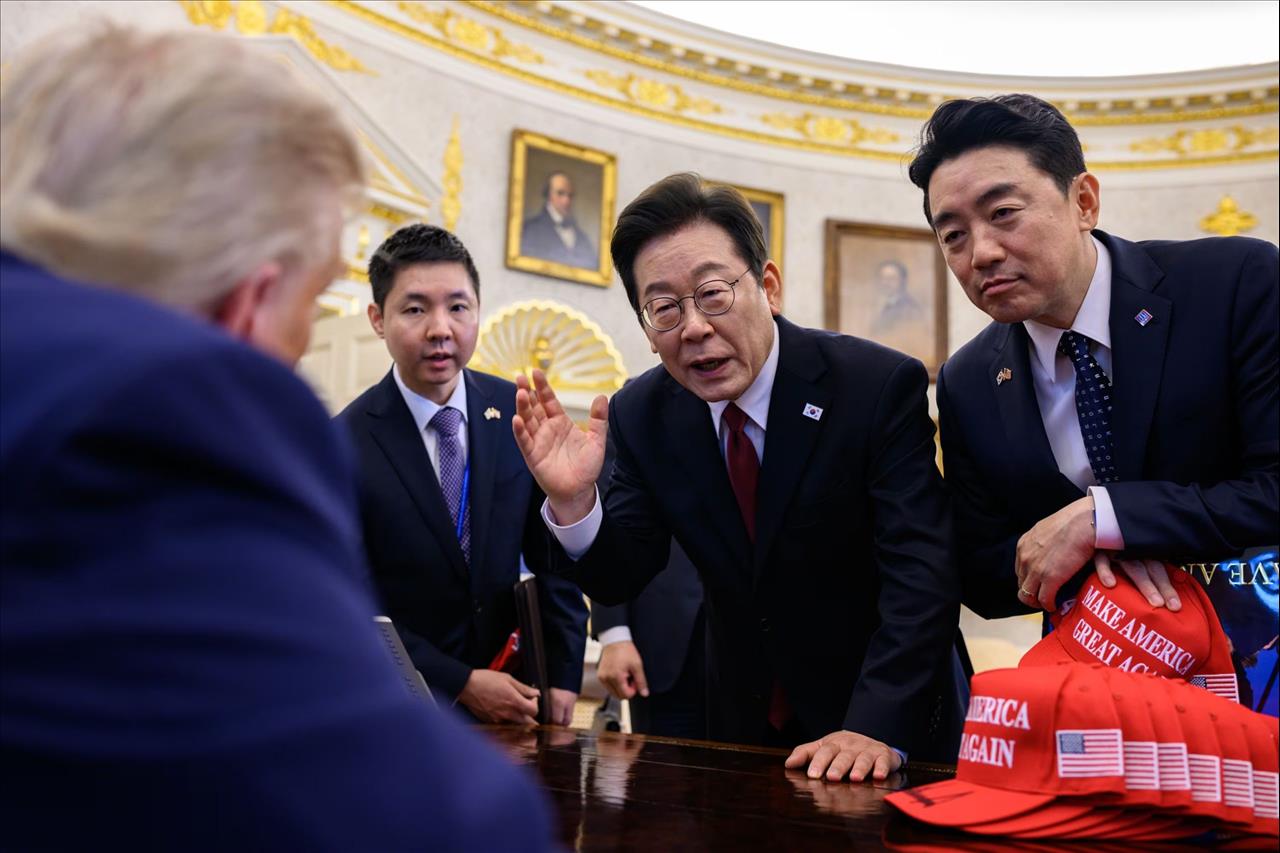How Trump's India Tariffs Will Downgrade Your Apps
As strange as it may sound, the tariff wars sparked by the US's“liberation day” levies could now filter through to things like apps and online shopping.
India is home to software service providers – companies that deliver and maintain apps for clients all over the world. Already, there have been reports that major Indian providers such as TCS and Wipro are seeing project delays as US clients adopt a“wait-and-watch” stance.
The Trump administration's recent announcement that it will impose a US$100,000 fee for new H-1B skilled worker visas , which is popular with Indian IT professionals, has added further uncertainty.
While US tariffs don't hit software services directly, they can create what are known as “second-order effects.” In other words, as companies in industries affected by tariffs (like retail and manufacturing) start to feel the extra costs, they slash discretionary IT spending.
This leaves less in their budgets for outsourcing contracts. My research on other types of shock in countries that provide IT services has shown similar pressures arising.
This all matters because consumers – the end-users of banking apps, hospital portals, online shopping platforms and delivery systems – rely on Indian software providers far more than they may realize.
Latest stories
Manned fighters still rule in US-China battle for air supremacy

South Korea's strategic crossroads

How India can salvage its Trump trade deal
Nearly 60% of the world's leading companies outsource their IT projects to India, and the country maintains much of the digital infrastructure behind all these systems.
An Indian team might be running the back-end of a US hospital's patient management system, for example. When tariffs raise hardware costs in the US, the hospital may delay adding new features like online appointment booking.
The cost of tariffs in the US will inevitably squeeze budgets, potentially making organizations pause, downsize or cancel IT projects.
For consumers, including those outside the US, this can translate into slower upgrades, glitches and longer waits for appointments that are managed on online platforms.
If tariffs squeeze client budgets and delay IT contracts, shoppers in Europe or Asia could face glitches, slower updates or disrupted payments.
A global outage in 2024 caused by a faulty update from US cybersecurity firm CrowdStrike grounded flights and disrupted retailers worldwide. It shows how quickly US digital shocks can cascade to consumers everywhere.
And a study found that some US and UK client firms ended IT projects when political unrest in Pakistan made delivery less predictable. One US client, for example, froze software development, leaving the outsourced team halfway through a system upgrade. This meant end-users never saw the new feature arrive and Pakistani software firms lost their largest US-based client.
Other research has found that a spike in terror attacks in Pakistan from 2008 to 2009 led to a delay in critical information reaching IT teams there who were working on software. This caused bugs to linger and left end-users stuck with faulty or outdated apps.
Keeping services runningWhen they're squeezed, outsourcing firms protect the software end-users by reshaping how projects are managed rather than relying on price-cutting or goodwill.
My recent study , undertaken with colleagues, found that resilient firms adapt on the fly, shifting work to backup offices or networks when disruptions hit, so people can still access systems, even during blackouts.
If US tariffs squeeze client budgets and similarly disrupt the pipeline of projects, outsourcing firms may respond in the same way. That could mean reallocating tasks, altering delivery timescales or opening offices locally – to shield end-users from service interruptions.

Sign up for one of our free newsletters
-
The Daily Report
Start your day right with Asia Times' top stories
AT Weekly Report
A weekly roundup of Asia Times' most-read stories
Other research shows that suppliers change processes mid-project when rules or client needs suddenly shift. To handle complex tasks like an orthodontist's 3D app, for example, a firm might decide to split the work. This could mean sending small teams abroad or opening offices near US or UK clients for sensitive tasks, while keeping most coding offshore.
We, as end-users of software apps, are not just passive recipients. Our research on software firms showed that when everyday users demanded apps that looked good and worked without glitches, companies passed that pressure straight to their outsourcing partners in countries like India and Pakistan. In effect, consumer expectations filtered upwards.
In the end, tariffs are not just abstract trade measures. They work their way through client budgets and outsourcing contracts, potentially shaping how quickly apps are updated or how smoothly systems run.
For end-users, that can translate into delays to new features, glitches or systems that freeze just when you need them most.
Umair Choksy is senior lecturer in management, University of Stirling
This article is republished from The Conversation under a Creative Commons license. Read the original article .
Sign up here to comment on Asia Times stories Or Sign in to an existing accoun
Thank you for registering!
An account was already registered with this email. Please check your inbox for an authentication link.
-
Click to share on X (Opens in new window)
X
Click to share on LinkedIn (Opens in new window)
LinkedIn
Click to share on Facebook (Opens in new window)
Facebook
Click to share on WhatsApp (Opens in new window)
WhatsApp
Click to share on Reddit (Opens in new window)
Reddit
Click to email a link to a friend (Opens in new window)
Email
Click to print (Opens in new window)
Print

Legal Disclaimer:
MENAFN provides the
information “as is” without warranty of any kind. We do not accept
any responsibility or liability for the accuracy, content, images,
videos, licenses, completeness, legality, or reliability of the information
contained in this article. If you have any complaints or copyright
issues related to this article, kindly contact the provider above.
Most popular stories
Market Research

- Cartesian Launches First Outsourced Middle-Back-Office Offering For Digital Asset Funds
- R0AR Launches Buyback Vault: Bringing 1R0R To R0AR Chain Unlocks New Incentives
- FBS Analysis Shows Ethereum Positioning As Wall Street's Base Layer
- Bydfi Joins Korea Blockchain Week 2025 (KBW2025): Deepening Web3 Engagement
- Ethereum Based Meme Coin Pepeto Presale Past $6.6 Million As Exchange Demo Launches
- Moonbirds And Azuki IP Coming To Verse8 As AI-Native Game Platform Integrates With Story






















Comments
No comment